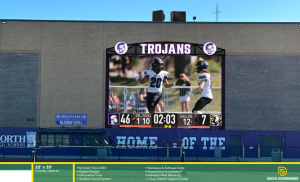Staff Editorial: Anonymous Alert isn’t used properly
November 7, 2018
The Anonymous Alert system was introduced as a way for the District 99 community to communicate potential safety threats to administration smoothly and in a timely matter.
To submit an alert the submitter has to identify as a student, parent, staff member, community member, security personnel or an administrator. But other than that, the submitter’s personal information is unknown.
The district does have the capability to search up the sender’s IP address if they need to with the help of the police counselor, but many cases aren’t severe enough for that. This leaves a big opportunity for submitters to send in a fake alert in hopes of getting someone in trouble for something they didn’t do.
Earlier this year a group of Snowball directors were all reported anonymously within a few days. All of the claims turned out to be false, but the deans still had to meet with them to investigate.
In one case a security guard had to physically go get the student out of their class because the alert alluded that the student had marijuana on them. The dean had to retrieve the student, interrupt the class, and spend time looking into an alert that turned out to be one hundred percent false.
The system at its core is a genius idea. Students can submit anonymous alerts when someone may have a mental health issue, or if they are scared for another student’s health. But some of the ways the system is being used doesn’t benefit anyone.
No student should have to be retrieved from their classroom by their dean over a bogus remark another student sent in. It isn’t fair that students are having their reputation put on the line for something they didn’t even do, while the student who sent in the alert doesn’t have to worry about ever getting in trouble for the false accusation.
These problems are not ones the school can solve. The district needs an outlet for the community to send in concerns anonymously, and the Anonymous Alert system does this in a good way. It is the responsibility of students to determine what is detrimental to a students health, and what will just make someone look bad for no reason.
Using this system to falsely accuse someone you are mad at just to make them look bad is immature and useless. These false accusations take time away from the investigations of real alerts that have real consequences.
The district has to investigate every single anonymous alert that is sent in. It isn’t a choice they make. That means that even if the claim seems totally unrealistic and bogus, the deans and counselors still have to spend time and the districts money looking into them.
It is our role as student’s to use the Anonymous Alert system appropriately. The only way the system should be used is to alert the district of student safety concerns, whether that be mental health related or not. It should not be used as a way to “get back” at someone whose reputation you would like to hinder.
























